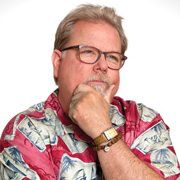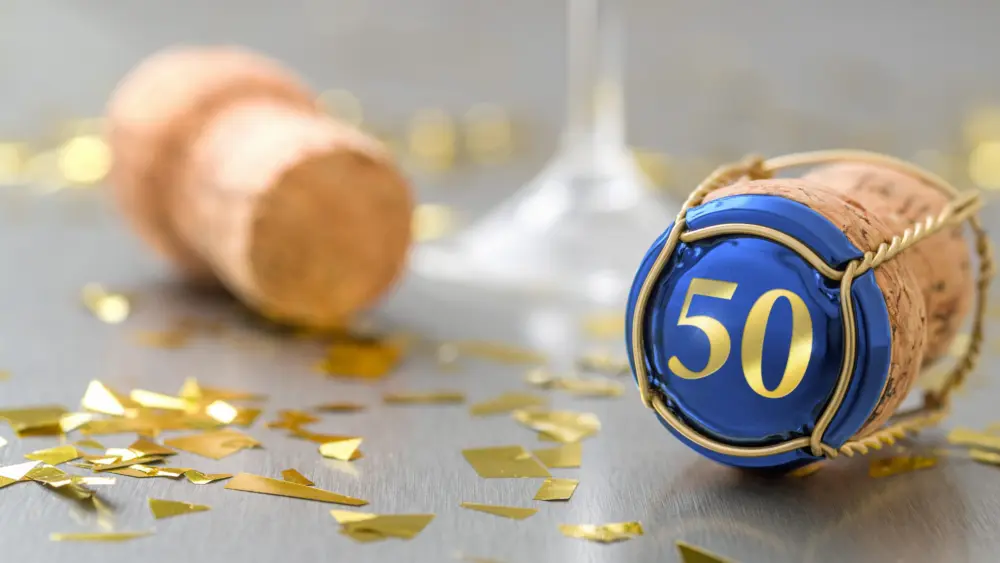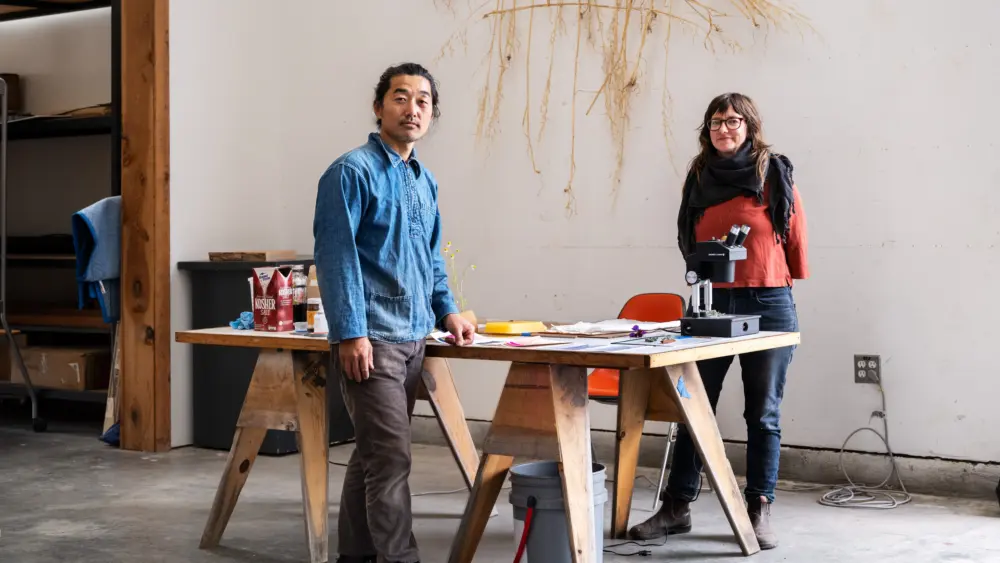
A batter for the San Francisco Pacifics faced heat from the Barbary Coasters in August at a game at the Balletto Vineyards ballfield in Santa Rosa. [Duncan Garrett Photography]
“Whoever wants to know the heart and the mind of America had better learn baseball.”—Jacques Barzon
America’s passion for baseball is all over the map. It’s little leaguers with eye black and gloves bigger than they are. It’s road trips to ball parks all over the country for the sake of adding another yard to the list. And it’s suffering because Joe Buck is calling a Saturday game on Fox.
It’s even a 23-hour Ken Burns documentary. That’s how you know we are dead serious about the sport and its place as our national pastime even in the midst of a world-gone-semi-nuts.
If there is still any doubt about the importance of baseball in our culture, consider the movies Bull Durham, Field of Dreams and For the Love of the Game. All three use baseball as a vehicle for the story. All three feature Kevin Costner. And all three were popular despite Costner largely playing Costner.
For me, baseball is about the smells. Fresh cut grass. The sun baking the bat rack, pine tar floating in the air. A young sauvignon blanc with a little lemongrass on the nose.
There’s a scene in the aforementioned Bull Durham where Costner irons in the middle of the afternoon, drinking a small bucket of scotch.
Ironing? Later in the film there are other scenes where players argue, dance and shoot pool while drinking beer. Finding wine in the film requires a search party.
But things have changed. Just as baseball altered the game (and not for the good) by putting pitchers on the clock, the mighty grape has infiltrated baseball via wine bars at the yard, official wines of MLB and wineries themselves. Indeed, one can hardly swing a weighted bat and not hit a place making wine with a player (active and retired) at the top of the winery roster.
Seaver Vineyards was helmed by Hall of Famer Tom Seaver and his wife Nancy. With Tom gone to the big clubhouse in the sky, Nancy runs the show these days. New York Yankee righthander Marcus Stroman has boutique winery Le Carenage with wines made from grapes grown in areas including Napa and Sonoma.
Red Stitch Winery is owned in part by former San Francisco Giant’s shortstop Rich Aurilia and Dave Roberts. Roberts is better known as the current manager of the Los Angeles Dodgers. JACK Winery in Napa is owned by two former major league players, Vernon Wells and Chris Iannetta.
Selah Winery in Calistoga is owned by former pitcher Joe Blanton, who played for seven different clubs including the Oakland A’s. The wine country has its own Field of Dreams at Balletto Vineyard in Santa Rosa, the field sitting inside the winery not far from vines.
And if you are going to talk baseball, you have to win on the road. Our road trip takes us to Baker Family Wines in West Sacramento, skippered by former Giants Manager Dusty Baker.
Major League Baseball even has an official wine, Woodbridge by Robert Mondavi. While I can’t say much about the wine, I can attest to MLB understanding how wine has invaded the game. Never let it be said that MLB ever passed up a chance to pimp the game we love for some cash.
More proof? The San Francisco Gigantes hired Evan Goldstein as the first master sommelier representing a major sports team. Goldstein was hired to not only select wines so Giant fans wouldn’t not drink swill, but to also pair wines with food offered at the yard. So, a hearty cabernet with a spicy polish sausage? What matches up with a pretzel slathered in Gulden’s mustard? His selections include Far Niente Chardonay, Twomey Pinot Noir and Silver Oak Cabernet.
Seaver Vineyards

The late Tom Seaver grew up in Fresno, his dad a raisin farmer. As a player, he collected wines and he and his wife were frequent visitors to the wine country. The couple discovered a property on Diamond Mountain in the late 1990s. Though the land had never been developed, Tom was convinced it was suitable for grapes. As a player, Seaver carried a reputation for working hard and not missing starts. That dedication carried over to his wine business. Not content to hire a vineyard manager, Seaver worked the land himself, treading the rows of grapes with his dogs as company, clipper in the back pocket of his jeans.
Today, his wife Nancy runs the winery that produces limited run cabernet sauvignon. It’s a family affair as Anne Seaver is CFO and Karen Seaver is manager. The winery produces 400 to 600 cases of wine each year. And there is a waiting list to purchase Seaver wine, with a new vintage each January.
La Carnege
Like Seaver Vineyards, Le Carenage produces a small amount of wine that is only available direct from the winery. Stroman has teamed with Matt Naumann of Newfound Wines to helm the winemaking process, accessing fruit from throughout California.
The way Stroman explains it, he discovered wine while playing in Toronto. His veteran teammates enjoyed wine with their meals and would share some of the grape with the rookie. The first release of his wines took place in March of this year.
Stroman’s wines are only available direct from the winery.
The 33-year-old Stroman has labored for four teams since his debut in 2014 with the Toronto Blue Jays. This year he is part of the New York Yankees rotation and is 10-7 with a 4.03 earned run average at this writing.
…..
“You spend a good deal of your life gripping a baseball, and it turns out it was the other way around all the time.”—Former Yankees pitcher Jim Bouton
That’s my favorite baseball quote, because it’s true. Baseball has always meant more to me than it should. I grew up hearing stories from my dad, Buzz Meagher. Pops was in the Dodger organization with Jackie Robinson, Pee Wee Reese and Roy Campanella. While he played in Montreal and Cuba, injuries cut his career short before he reached Brooklyn.
I played a little as well. I was good enough to get the attention of the Dodgers. I played in a winter league for them at 17 but wasn’t drafted. One hot August night while trying to leg out an infield hit, I tore a hamstring in half in two spots. I played college ball for another year and a half, taking pain killers like M&Ms. I was done but couldn’t admit it. Catchers with just one good leg never go anywhere.
I took my last swing at Big Rec in San Francisco’s Golden Gate Park, the same field where my dad was a schoolboy hero. I sat alone in that dugout long after the last out, my broken heart hurting far more than my leg.
Failing as a player was lucky for me, making me search for the next thing I could love doing. Turns out writing was it. I’m much better at telling a story than I was at collecting base hits.
JACK Winery

JACK Winery in Napa was born of a conversation between Vernon Wells and Chris Iannetta over what else, glasses of wine. Wells was a three-time Gold Glove centerfielder who never met a fastball he didn’t like. He played for the Yankees, the Blue Jays and the California Angels.
Iannetta spent his time behind the dish, a man after my own heart. He was a Rockie, an Angel, a Mariner and a Diamondback. He finished his 13-year career in 2019 with 141 dingers and a .230 average.
The winery is named for the initials of their kids, Jayce, Ashlyn, Christian and Kylie.
JACK produces a trio of wine varietals, cabernet sauvignon, pinot noir and a white wine blend. This may sound like a broken record, but the only way to lay your hands on these wines is via allocation direct from JACK.
In this case it’s a good time to know JACK because the wine begins at $45 and rolls as high as $400 for a 2019 magnum of cab from Atlas Peak.
…..
“I never had a job, I just always played baseball.”—Satchel Paige
Red Stitch
Rich Aurilia and Dave Roberts were teammates on the San Francisco Giants in 2007 when shared dinners began to include wine tastings. The two players included their spouses as well as friends John and Noelle Micek. As the wine tastings became more elaborate the three couples began talking about going into the wine business.

Besides a love of wine, there is more tying them together at Red Stitch. Tricia Roberts, Dave’s better half, went to sommelier school and is a certified specialist of wine. Both John and Noelle Micek have taken viticulture classes at UC Davis. But they leave the winemaking to Rolando Herrera of Mi Sueno Winery.
Red Stitch sources grapes from Napa Valley as well as Santa Lucia Highlands in Monterey County. Red Stitch produces three varietals—cabernet sauvignon, pinot noir and chardonnay—and they offer various wine packages. It produces about 1,000 cases of wine a year and has no tasting room.
Aurilia is still in the game as a baseball analyst for NBC Sports Bay Area and was voted into the Giants Hall of Fame in 2010. Besides wine, Roberts has a side gig as the manager of the LA Dodgers. He has managed the bums for nine years and was voted Manager of the Year in 2016.
At the time of this writing, Aurilia was out of the country and Roberts was bogged down with making out lineup cards and figuring out where Mookie Betts should play.
…..
“Some days you win. Some days you lose. Some days it rains.”—Ebby Calvin LaLoosh from Bull Durham
Selah Winery
When Joe Blanton broke in as a rookie with the A’s, he dined with teammates and watched as the veterans would order wine with their meals. He had never really drunk wine before. In 2005 he began taking off-days in Napa, tasting wine and enjoying the area.
While still playing, he began annual visits to Napa in November. “I’d go for two weeks, post-harvest, and I was meeting winemakers, winery owners and I was falling in love with Napa,” Blanton said.

Blanton said a visit to Tom Seaver’s house was a turning point for him. “We talked baseball, we talked wine, it was amazing.” Blanton said they walked the vineyard together and he started to feel like maybe wine could be something special for him.
He bought the Selah property while he was still playing, thinking that it could be what he would do post-playing. “Everybody who plays comes to that hard-stop when you can’t play anymore, and you look for that second passion.”
Selah produces about 250 cases a year of cabernet sauvignon. It’s a small property and not open to the public.
Blanton sees similarities in the wine business to baseball. The growing season takes place during baseball season, harvest around the time of the World Series. Your winemaker is your Cy Young pitcher, vineyard manager is the MVP. As for Blanton, he sees himself as the general manager, trying to let his team produce the best results.
…..
“Baseball is like church. Many attend but few understand.”—Leo Durocher
Balletto Vineyards
As Mark Twain famously offered, “buy land because they aren’t making any more of it,” wineries are oh so careful with how they utilize their property. What kind of grapes will grow best in certain locations. How much sun will this plot get? How many cases will this vineyard yield?
Balletto has a slightly different take. Owner John Balletto took four acres of land not far from pinot noir and chardonnay grapes and built a regulation baseball field for his employees and their families to enjoy. The field was his response to a staff request that he sponsor their local baseball team.
The employees built the field with Balletto picking up the materials and equipment and setting aside the land. Balletto estimates that the land could have yielded 12 to 15 tons of grapes, but having the field for his employees is more important in the long run.

On summer and spring weekends, the field is the scene of surprising catches and close calls. While the other wineries in this story have their hook in the big leagues, Balletto is closer to what most of us remember. Wooden benches in the dugout. A pitcher’s mound that may change shape as the season moves along.
It’s the romance of what can be. The laughter and cheers. The sharp ping of a well-struck ball. Watching a player dust themselves off, knocking the dirt back onto the field as the dust disappears into the ether, like a ghost into the corn.
…..
“You have to be a man to play baseball for a living, but you gotta have a lot of little boy in you too.”—Roy Campanella
Baker Family Wines
I’m trying to catch up with Dusty Baker to get his take on wine and baseball. I leave messages at the winery. An old friend of mine who is pals with Dusty reaches out. But fate intervenes. Dusty’s son Darren Baker gets called up to the Bigs and the Washington Nationals. Dusty is in the stands as Darren, a former Giant’s bat boy, singles off the first pitch he sees. A video captures the smile on Dusty’s face that can be seen from space without aid of a satellite.
Chik Brenneman, the winemaker at Baker Family says that Dusty is a realist when it comes to the family business. “He says his name might sell the first bottle. But it’s the wine we are making that sells the next bottle.”
The story goes that Baker had opened a bottle of scotch being sold with a celebrity label. The scotch was terrible, and Baker said I can’t drink this junk. He then told Brenneman if Baker’s name was on it, the wine had to be good.
So, no pressure for Chik.
Brenneman was the winemaker at the University of California Davis Teaching and Research Winery for 13 years. Baker, like so many times on the baseball teams he managed, is counting on a veteran to produce in a key role.
Baker originally asked for Brenneman’s help with a small plot of land at his home in Placer County to produce syrah. It was a hobby, just some wine for Baker and friends. Trouble was that the wine kept getting better.
Baker played for the Atlanta Braves, the Dodgers, the Giants and the A’s. He was in the on-deck circle when Hank Aaron broke the pre-steroid period home run mark. He was on the all-star team twice and won a gold glove. He managed the Giants, the Nationals, the Reds, Cubs and the Astros and has been named manager of the year three times. That has never happened before, and he will make the Hall of Fame as a manager once he has been out of the game long enough for the vote.
…..
 “Baseball may be a religion full of magic, cosmic truth, and the fundamental ontological riddles of our time, but it’s also a job.”—Annie Savoy from Bull Durham
“Baseball may be a religion full of magic, cosmic truth, and the fundamental ontological riddles of our time, but it’s also a job.”—Annie Savoy from Bull Durham
In the end, I have a theory about baseball and wine—why there are so many former players gravitating toward the vines for a living. Baseball is romantic. It’s fathers playing catch with sons. It’s sitting in the bleachers soaking up sun, spitting sunflower seeds and arguing with friends about why the pitcher should have been yanked sooner.
And winemaking is side-by-side with farming, which is also romantic. Tending to the land. Creating something from the dirt via hard work. The vines coming alive with fruit, morning dew shining on the grapes. Wine swirled while holding it toward the sun to catch the legs on the side of the glass.
Romance. Plus, wine tastes good.
Bill Meagher is a contributing editor at NorthBay biz where he pens the monthly column Only in Marin. He is also a senior reporter for The Deal. This story was written while listening to his baseball mix that includes Baseball by Michael Franks, Catfish by Bob Dylan and A Dying Cub Fan’s Last Request by Steve Goodman. It was also written while drinking Baker Family Wines Sauvignon Blanc—tart, grapefruit overtones with hints of the steal sign. Meagher would like to see SF Giants President Farhan Zaidi traded for a broken bat and a case of baseballs to be named later.
Author
-

Bill Meagher is a contributing editor at NorthBay biz magazine. He is also a senior editor for The Deal, a Manhattan-based digital financial news outlet where he covers alternative investment, micro and smallcap equity finance, and the intersection of cannabis and institutional investment. He also does investigative reporting. He can be reached with news tips and legal threats at bmeagher@northbaybiz.com.
View all posts



